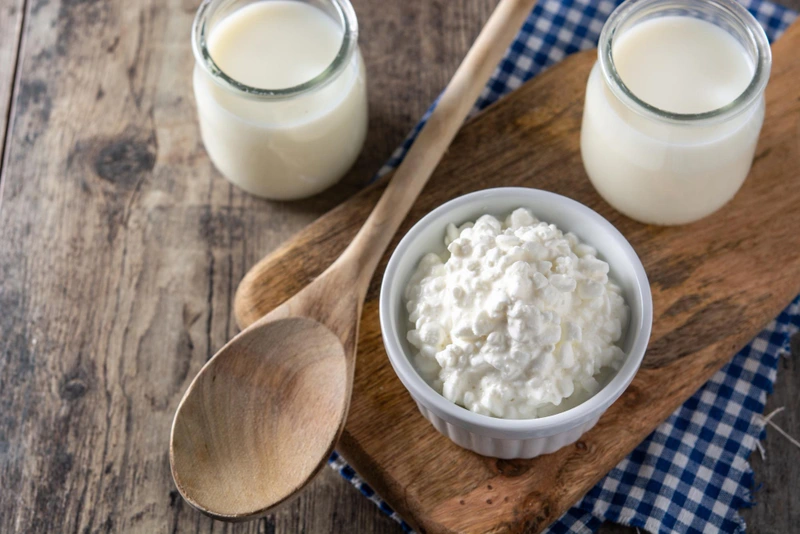- Published on: Jul 29, 2021
- 2 minute read
- By: Raj Dwivedi
What Tests Are Used To Manage Anemia And What Do They Mean?
The doctors use a number of tests to diagnose anemia. Hb (hemoglobin) is one of the key indicators used in diagnosis. A hemoglobin test is a blood test that measures how much hemoglobin you have in your red blood cells. A hemoglobin test is generally used for detecting:
In addition, a hemoglobin test can also be carried out to assess bone marrow's response to treatment, evaluate possible blood donation and check the levels of red blood cells in the body. There are certain conditions that may interfere with the results of the hemoglobin test. In such cases, it is recommended to get the test done again.
For the hemoglobin test, a sample of your blood is taken and tested in a clinical laboratory [read more about the process here]. The results are expressed as grams of hemoglobin per deciliter (g/dL) or micrograms per liter (mcg/L). Normal range for this test is 12g/dL - 18g/dL (12.1-18.0 g/L) for adults and 9g/dL - 13g/dL (9.0-13.3 g/L) for children. If the test result comes out to be less than 7 gm, it can indicate a serious condition known as severe anemia. In some cases, the doctors may order follow-up tests to assess the current condition of the patient.
Apart from the hemoglobin test, certain other blood tests can be used for detecting low RBCs (RBC count) or abnormal types of RBC (red cell indices) or hemoglobin (Hb). These include complete blood count tests, reticulocyte tests, iron tests, and red blood cell indices.
In some cases, the doctor may opt to do a bone marrow aspiration and exam to check for any abnormalities in the bone marrow cells. In such cases, it of red blood cells is karyotype to rule out chromosomal disorders.
The most common reason for having an inadequate number of red blood cells in the body is an iron deficiency or anemia. Iron plays a significant role in the production of hemoglobin, which is responsible for carrying oxygen from the lungs to the tissues of other parts of the body. Hence, people suffering from iron are known as sickle cell trait. The tests include:
Complete blood count test - The complete blood cell count (CBC) is a routine test that checks the different components of your blood like number of red blood cells, white blood cells and platelets. It also has information about the size and hemoglobin content in each of these cells. A CBC includes tests for the following:
Reticulocyte test - This is a blood test that measures the reticulocytes (immature red blood cells) in the bloodstream. A high level of reticulocytes can indicate increased production of red blood cells by the bone marrow to compensate for anemia, or destruction of very early stage RBCs which are still unable to mature.
Iron tests - Iron is an essential component for RBC production. A test to assess the iron level in your blood is called a serum ferritin test, which measures the amount of iron stored in the body's cells and tissues. Another way to evaluate low iron levels is by carrying out a transferrin saturation test. In this case, the lab technician will extract serum from your blood sample and measure the amount of transferrin protein present in it. Transferrin is a protein that carries iron to the bone marrow where red blood cells are produced. Thus, if there is an insufficient amount of transferrin protein present in the serum, it shows that there is an inadequate level of stored iron.
Hemoglobin tests - A hemoglobin test is generally carried out to detect anemia, especially if the result of CBC tests are inconclusive. During this test, a small sample of blood is collected from your vein and sent to the laboratory for analysis. The test measures the amount of hemoglobin in your red blood cells.
Red cell indices - Red cell indices are tests that measure the size and hemoglobin content of the red blood cells. The values obtained from these tests can be used to detect anemia and other blood disorders.
Karyotype test - It is a lab test used to evaluate chromosomal abnormalities in red blood cells or bone marrow cells
Low blood cell counts also have other causes, such as infections or tumors. In some cases, low blood cells may indicate a more serious condition like bone marrow failure which requires immediate medical intervention to save the patient from death.
Thus, if you are suffering from any of these conditions and symptoms and suspect that you may be anemic, check with your doctor for the necessary tests to confirm or rule out your suspicions. Early detection and treatment of anemia can save you from serious complications like heart attacks, strokes, blood clots, etc.
Our Services
Request A Callback
Recent Posts
Is Curd Good or Bad for Acidity?
Aug 02,2025
Can Fatty Liver Be Reversed Completely?
Jul 31,2025
How Your Sleep Schedule Affects Digestion
Jul 28,2025
How to Spot Signs of Hormonal Imbalance in Men
Jul 26,2025
Do You Need a Digital Detox? Signs and Symptoms
Jul 25,2025










